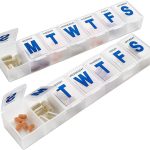6 Things You Need to Know About Medication Management in Mental Health

Despite being heavily stigmatized, the fact is that mental health medication can be an absolute game changer to anyone living with mental illness. Think about it. The brain sends emotional and cognitive signals through the use of various neurochemicals that trigger various receptors, as well as through bioelectrical impulses through the synapses and nervous system. In a healthy brain, these elements are regulated and balanced, allowing for proper control. What happens to the person however if their brain lacks the appropriate structures to make use of its full range of neurochemicals? What happens if signals in the synapses are sluggish or too frequent?
Medication for mental illness is not a cure, quick fix, nor is it an easy way out. It is a form of chemical compensation, making up for the lack of balance or for the abnormal development of particular brains.
If you’ve or someone you know recently been put on medication for mental illness, as with any regularly-taken medication there will be a process for taking it that will need to be followed to get the maximum benefit. Today we’re going to go through a few things that are handy to know when managing your medication. Australia might have great postgraduate nursing courses, but we don’t think you should need to enrol in one just to manage your meds.
- Types of Mental Illness Medications
Just as there are different mental illnesses, there are different kinds of medications to address them. Just like physical illness, it’s all about the right tool for the job. You wouldn’t give a person with a broken arm a CAT scan. You wouldn’t give a person with depression a depressant.
There are six main types of mental illness medications, and depending on what you’re going through you will be prescribed one or a number of these.
Antidepressants
These, as the name suggests, are typically used to treat depression. However, they can also be used to treat anxiety disorders, and can be used to mitigate the effects of several personality disorders.
Antipsychotics
These medications are used to treat the psychotic symptoms of disorders like Schizophrenia or Dissociative Personality Disorder (DID), but are also useful in the regulation of manic episodes in illnesses like bipolar disorder.
Mood Stabilisers
These are used to treat manic episodes and to regulate emotions in disorders that cause disproportionate emotional reactions.
Depressants
Although it may sound strange, depressants are a form of medication for mental illness. They are used to calm people down when in a state of heightened erraticness.
Anxiolytics
Often called “anti-anxiety” these medications reduce panic and the magnitude of fight/flight/freeze reactions to inappropriate stimuli.
Stimulants
These medications help to satiate the constant need for stimulation that occurs in brains with ADHD, allowing them to regulate and maintain focus.
- How Long Will it Take for my Meds to Work?
We can’t really say. There may be only six different forms of mental health medication, but there are hundreds of different medications, each of different strengths, different side effects, and that will affect certain things more than others. Without knowing specifically what medication you’re on, and what other regular medications you might take, and how they interact together – it’s impossible to give a totally accurate time frame for your medication to reach its full effect. For some medication it can take days, others weeks, some months. Whoever prescribed your medicine should be able to let you know about how much time it will take for the medicine to work its magic.
- Side-Effects and Long Term
Most common medications like painkillers have little in the way of side effects. However, medication taken for mental illness is severe. It is a serious medication that actively alters the chemistry of your brain. Mental health medications come with a laundry list of side effects and possible long-term repercussions.
Looking at the extensive list of side effects your medication(s) may cause can be daunting, but remember that this is just so that you are warned about what your medication may cause. Everyone is different, and everyone’s body interacts with mental health medication differently. Talk to your GP about the medication you’re on, and any side effects you may experience.
- Mixing Drugs
Psychiatric medications interact with you and your body at their most core stage of functioning, cognition. Your brain controls everything in your body, so when you take a medication that affects how the brain works, you are effectively changing how your body works. This has large ramifications when you consider the role other medications may play in the maintenance of other conditions you might have.
If you take regular medication, be sure to consult your doctor or healthcare provider about taking your new medicine alongside it. They will be able to advise you about how to manage your mental health and existing medication, or if something needs to change. It may also be necessary to either restrict alcohol intake, or cut out alcohol entirely; and of course recreational drugs should never be taken alongside mental health medication.
- Hospital vs Home
If you’ve been admitted to hospital for mental health reasons, the staff there will help you get on track with your medication. However, you won’t be at the hospital forever, and eventually, you’ll have to go home and manage your own medication(s). It can be difficult stepping into a new medication routine, but there are tools that can be used to make it easier on yourself. One very popular tool is the dosette box, a divided container organized into days of the week. When you get your medication, you divide up the doses into each compartment, allowing for better organization of your doses and an easier time remembering to take it. However, there are many tools out there to make managing regular medicine easier.
- Payment
Fortunately under Australia’s government, citizens have the right to subsidised medication and treatments for chronic conditions. This includes medicine for mental health disorders.
Australia is one of the most mental-health care-accessible countries in the world, and as the conversation around mental illness opens up and becomes less stigmatized, the range of tools and systems we have access to in order to look after our brains is amazing. If you or someone you know is struggling, you can help them by assisting them in getting assistance, or if it’s an emergency call the hospital or one of the following crisis lines.





